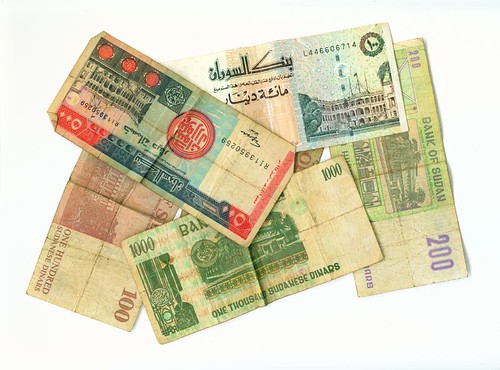I explained that while it is perfectly normal for a new country, in this case South Sudan, to issue its own currency, Khartoum claims that South Sudan issued the new currency earlier than had been agreed upon. This caused Khartoum to issue its own new currency sooner than planned.
 |
| Flickr/Mattnic |
Khartoum is concerned that South Sudan will try to move as many as possible of these old pounds to North Sudan to purchase something of value, while the South’s new pound, which it valued as one to one with the North’s pound, will then become the legal tender in the South and only cost the government whatever was required to print money.
The North is trying to prevent a flood of old Sudanese pounds coming from the South, although it has said it is ready to negotiate with the government of South Sudan on its holdings of these pounds. Neither North Sudan nor South Sudan has said when it will no longer accept the old pound. In the meantime, the black market in North and South Sudan has devalued the pound from its official rate. This does not bode well for either country.
Ethiopia and Eritrea went through the same situation several years after Eritrean independence. There seems to have been an understanding on the Eritrean side after it issued a new currency, the Nakfa, that it would be able to redeem all of the Ethiopian Birr that it held. Ethiopia immediately issued new Birr, rendering null and void the old Birr held by Eritreans. Inside Ethiopia, it exchanged old Birr for new Birr. This misunderstanding was one of many factors, not the most important one, that led to war in 1998 between Eritrea and Ethiopia.
The currency issue should not be a surprise for Khartoum and Juba. There have presumably been discussions as to how best to handle the situation. While it does add to the friction between the two countries, it will not in and of itself result in conflict.



